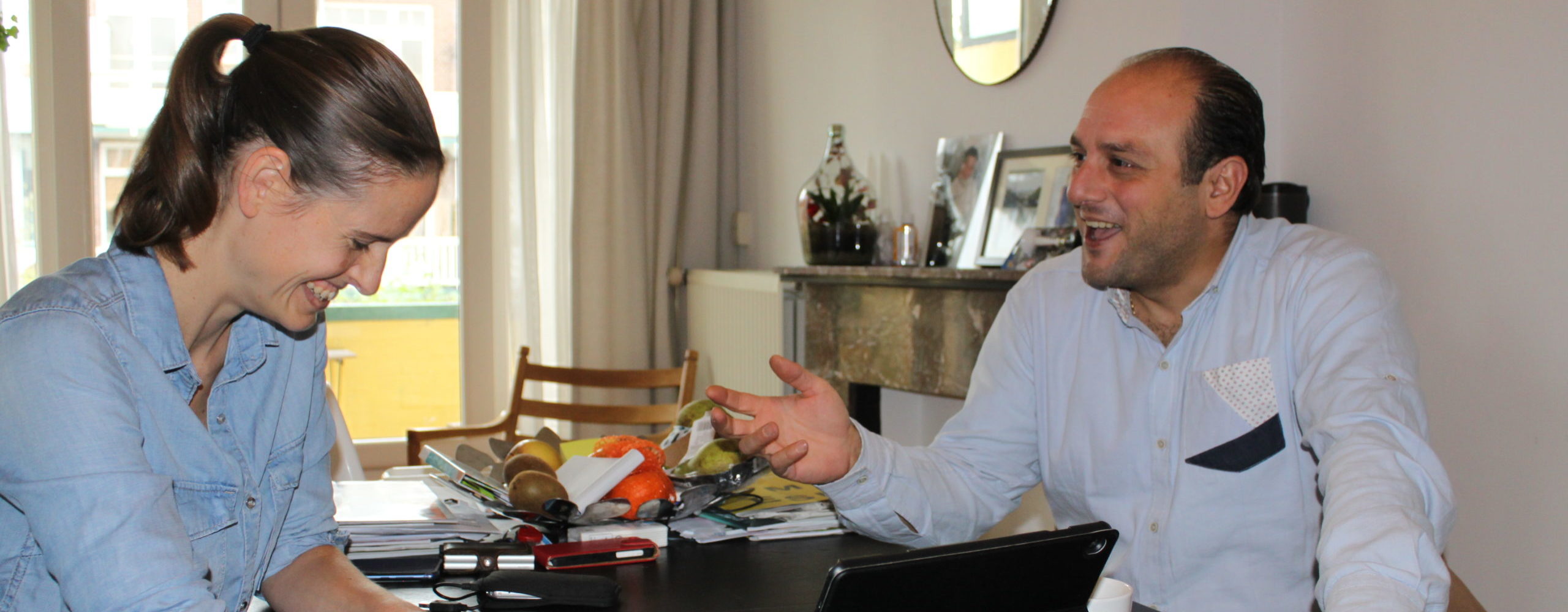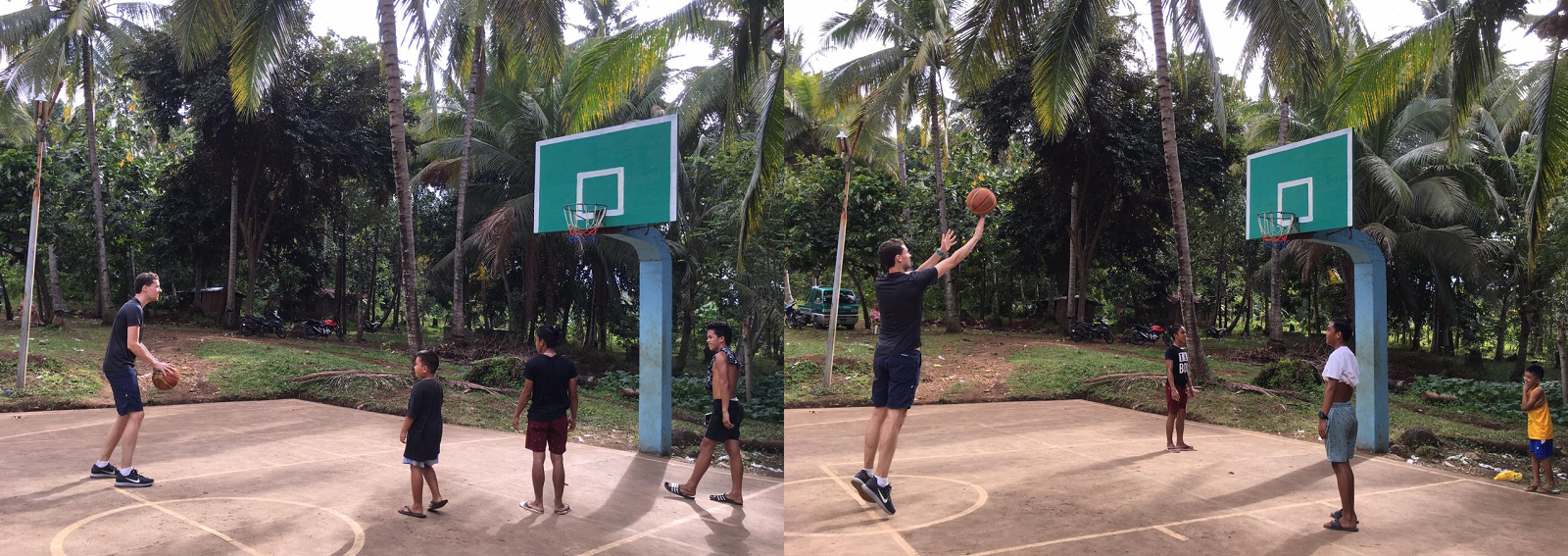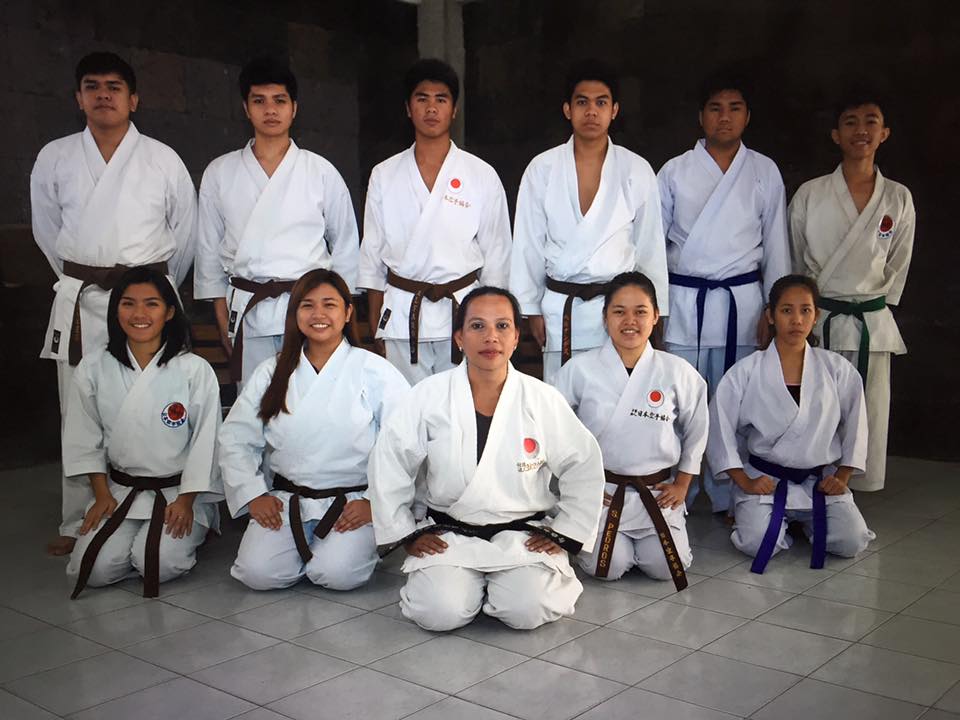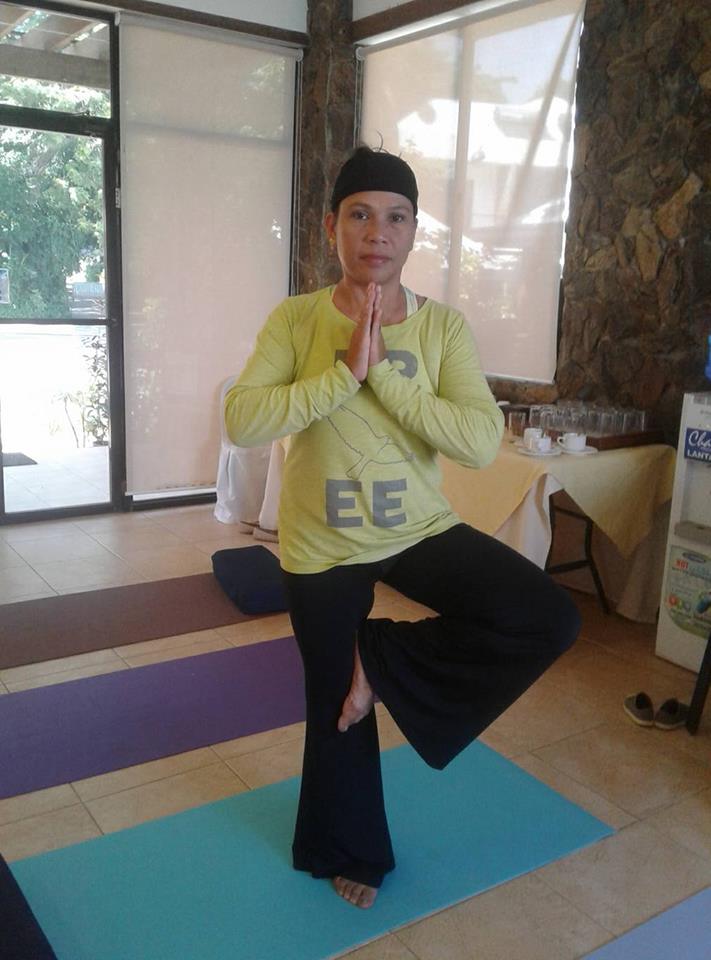| This article was first published on MindaNews, the news service arm of the Mindanao Institute of Journalism. |
A black belt in Shotokan karate, 48-year old Jessica Hojas Esparrago, coach and sports leader at Xavier University – Ateneo de Cagayan, is one of few women coaches in Philippine karate. The self-proclaimed “mama bear coach” is determined to develop athletes with a heart, smarts, and skills. “At first they are loose clay without knowledge yet of the art. Then I add water and mold my students to become a perfect pot. I teach them the proper way to do it.”
Up until her college days, Esparrago specialized in track and field, in particular the 400 and 800 meter dash. The first fascination for karate started with seeing American martial arts artist and actress Cynthia Rothrock beat up bad guys in Hollywood films. “At the time, late 80s and early 90s, I didn’t see many women in martial arts. Rothrock really inspired me.”
Three branches of karate
In 1988 she enrolled at Xavier University and joined the first school of the Japan Karate Association –Nihon Karate Kyokai Philippines Inc. in Cagayan de Oro. Of the initial 20 members only 3 were women. During her college years as a varsity student, Esparrago would represent the school at local and interschool karate tournaments. When she completed her bachelor’s degree in elementary education the school asked her to handle a karate class for physical education.
“I was 20 when I taught my first real class. The experience inspired me to start a varsity karate club at Xavier University. I teach my students all tree branches of karate: the art, or ‘kata’, the sport, and karate as self-defense. There is no first attack in karate. That’s a message I also advocate in my outreach work with women and children.”
Part of her outreach focuses on women who have suffered abuse. Esparrago has noticed it’s not easy to encourage them to join her karate program. “Once you are abused you feel ashamed and fearful. What if the husband finds out? The women might be tested by them.” The karate coach also went into the community after tropical cyclone Sendong ripped through Cagayan de Oro. “I brought kicking pads with me and had survivors kick them while shouting at the top of their lungs. It works as a therapeutic experience. My karate students joined me to one of the evacuation centers to play with the kids.”
Result of my creation
And then there’s also the Xavier Ateneo Night School Program that Esparrago is involved in. The night school, part of the Department of Education’s Alternative Learning System, aims to educate out-of-school youth and street children in Cagayan de Oro City. One of their subjects is karate. “I emphasize that the essence of karate is to build character, not to learn fighting skills. In my training, before I teach self-defense, I teach the 5 principles of karate: seek perfection, be faithful, endeavor, respect others, and refrain from violent behavior. After practice we all meditate together. I ask the kids to close their eyes and memorize the principles. The exercise teaches them to be humble to others who don’t know the art of karate.”
She applies the same approach to her student-athletes, some of which she hopes will coach karate someday. “I handle some trainings for my brown belters on instructing skills and teaching the art. I developed modules for that from beginner to advanced level. They know I will not always be there to guide them and it would be my failure if I don’t teach them well. Students are a reflection of their sensei. I would love to see them become sensei themselves and start their own karate dojo.”
Esparrago feels strongly about molding her student so they can pass on the principles of karate. “I consider them the result of my creation. They are my product. That’s why I always threat my students as my children. I never discourage them and I’m never harsh. I create an atmosphere in which they feel safe to tell me what they are thinking about and if they are having problems.”
Gaining skills and confidence
In 2015, Xavier University hosted the first-ever Mindanao Peace Games (MPG), a Mindanao-wide movement of schools and universities from all six regions <http://athletics.addu.edu.ph/mpg-template-for-transformative-movements-in-mindanao/> that strives to create a better sports culture that is carried by transformative community leaders. A year later, in General Santos City, Esparrago and her student-athletes participated in MPG for the first time—and it was a memorable experience.
“For my athletes to see other women from schools from all over Mindanao competing in different sports sensitizes them to what unites us all as the peoples of Mindanao. That year, and during the MPGs that followed, they made a lot of friends from other schools. They learned how to better speak in public and approach people. They are already looking forward to next year’s MPG.”
Esparrago learns a lot from being a part of the Mindanao Peace Games herself as well. “Through different MPG events and gatherings, such as coaches’ forums and the Discovery Leadership Program, I gained confidence and leadership skills. Those help me to organize tournaments and forums myself. In the world of karate in the Philippines, especially in the nationals, I’m basically the only woman coaching. I am proud and I want to empower women in coaching. MPG, and the platforms in sports it has created, showcase to young women that they too can do that.”
All about control
The karate coach is still active as an athlete. Last month she took and passed the international black belt exam. She’s now an international 3rd dan, a national 4th dan, and a 1st dan under the Philippine Karate Federation. Dan is the ranking system used by most Japanese karate organizations. Esparrago’s karate style is called ‘Shotokan’ and it includes 26 kata, or synchronized movements, collectively described as karate as an art form.
“The Japanese are very strict on form. In Shotokan you always have to observe your proper form when you’re doing kata. Some of the older masters in Shotokan are writers and philosophers and they develop new rules for karate. In my own small way, by writing a thesis on enhancing stretching routines, I’m adding to the body of knowledge on enhancing performance in karate.”
The results from her research would benefit those athletes looking to better utilize their reach and flexibility in their movements, for instance for roundhouse kicks. “My favorite sequence of movements is jab, followed by reverse punch, and then finished with a roundhouse kick to the body. Contrary to popular belief, karate is much more about control than about hitting and kicking. When you kick to the face, for instance, you have to pull back straight away after touching your opponent’s skin. That’s why we don’t use protective gear. That’s different from a sport like taekwondo where athletes do follow through upon contact.”
Esparrago has built a life around karate and her family has been on the journey with her. Her eldest 26-year old daughter is one of her former student-athletes. She’s now a teacher in basic education at Xavier University. With her 2 siblings, a 20-year old brother and 14-year old sister, she joined mum around the Philippines to tournaments and other karate-related events. Esparrago recollects: “We traveled a lot and visited places that, when I was young, I could only dream of, like Baguio City, the summer capital of the Philippines. I’m grateful I got to share these experiences with my family. I’m grateful to karate.”
The Mindanao Peace Games (MPG) is a joint initiative of schools and universities from all six regions of Mindanao that aims to create platforms in sports through which to develop empowered women who will be inspiring and transformational leaders in initiating better and peaceful communities in Mindanao. The fourth edition of MPG took place in Butuan City from October 27 to 30. You can follow MPG on Twitter (@MPG2018) and Instagram (mindanao_peace_games).










